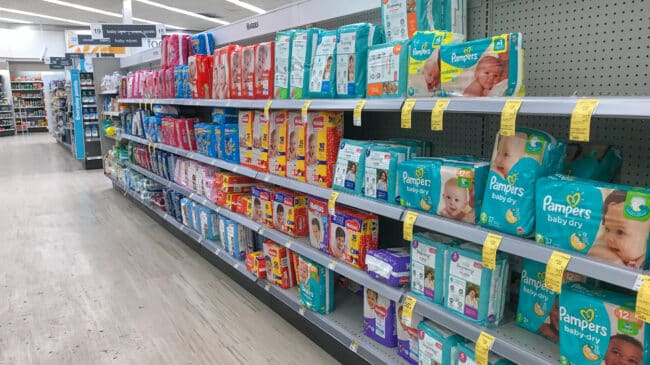Summary
Nevada Question 5 is a legislatively referred statutory change that would exempt child and adult diapers from the sales tax. The state Sales and Use Tax Act of 1955 specifies what products are exempt from sales taxation. Current exemptions include farm machinery, food, prosthetic devices, newspapers, feminine products, medical equipment, medicines, oxygen delivery equipment, and mobility-enhancing equipment. Question 5 would add child and adult diapers to this list of exempt items.
Fiscal Impact
Legislative staff estimated that exempting child and adult diapers from the sales tax would reduce state general fund revenues by $5.8 million in fiscal year 2025 alone and by $460.9 million between January 2025 and December 2050.
Proponents’ Arguments
Kelly Maxwell, executive director of Baby’s Bounty, testified in favor of the measure that became Question 5. She argued that “diapers and related healthcare items are not a luxury. They are fundamental needs for the health and development of a child.” She continued:
“Babies are at risk for many health conditions and illnesses, including skin infections, rashes, urinary tract infections and viral meningitis. Newborns require eight to ten diapers a day. Families may spend over $1,200 per year on diapering supplies…Without an adequate supply of diapers, parents are unable to send their children to daycare, preventing their own attendance at work or school. Fifty-seven percent of parents missed an average of four days of school or work in the past month due to a lack of diapers. We need to ensure that essential items, including diapers, are not so costly that our families must forgo their jobs or education.”
In a state senate hearing, Maxwell estimated the proposal could save a family with children in diapers about $100 per year.
Opponents’ Arguments
During legislative hearings, no one testified in opposition to the proposal that is now Question 5.
Discussion
The argument in favor of exempting certain items from sales taxation is typically that certain items, like medical devices or medicines, are necessary for life, and so taxation should not make them less affordable. But because sales tax exemptions don’t come with reductions in government spending and revenue needs, they actually don’t make the poor better off. Instead, the tax burden shifts to other goods purchased by the poor.
States tend to compensate for sales tax exemptions or holidays by increasing the tax rate on items that remain subject to taxation. A 2022 analysis of sales tax exemptions for groceries by the Tax Foundation found that the lowest-earning 10% of households experienced 9% more overall sales tax liability in areas with a grocery tax exemption because they paid more tax on other items.
The Tax Foundation argues narrow sales tax exemptions on items like groceries also wind up being surprisingly regressive. While it’s true that low-income households spend a higher share of their income on diapers than high-income households, low-income households also spend a higher share of income on household goods in general. By contrast, high-income households tend to save and invest larger income shares. The result is that lower-income households wind up paying a larger share of their income in sales taxes and, to the extent sales tax exemptions drive tax rates higher on other items, these exemptions make sales taxes even more regressive.
In its recommendations for structuring sales taxes, the Tax Foundation declares: “An ideal sales tax is imposed on all final consumption, both goods and services.”

